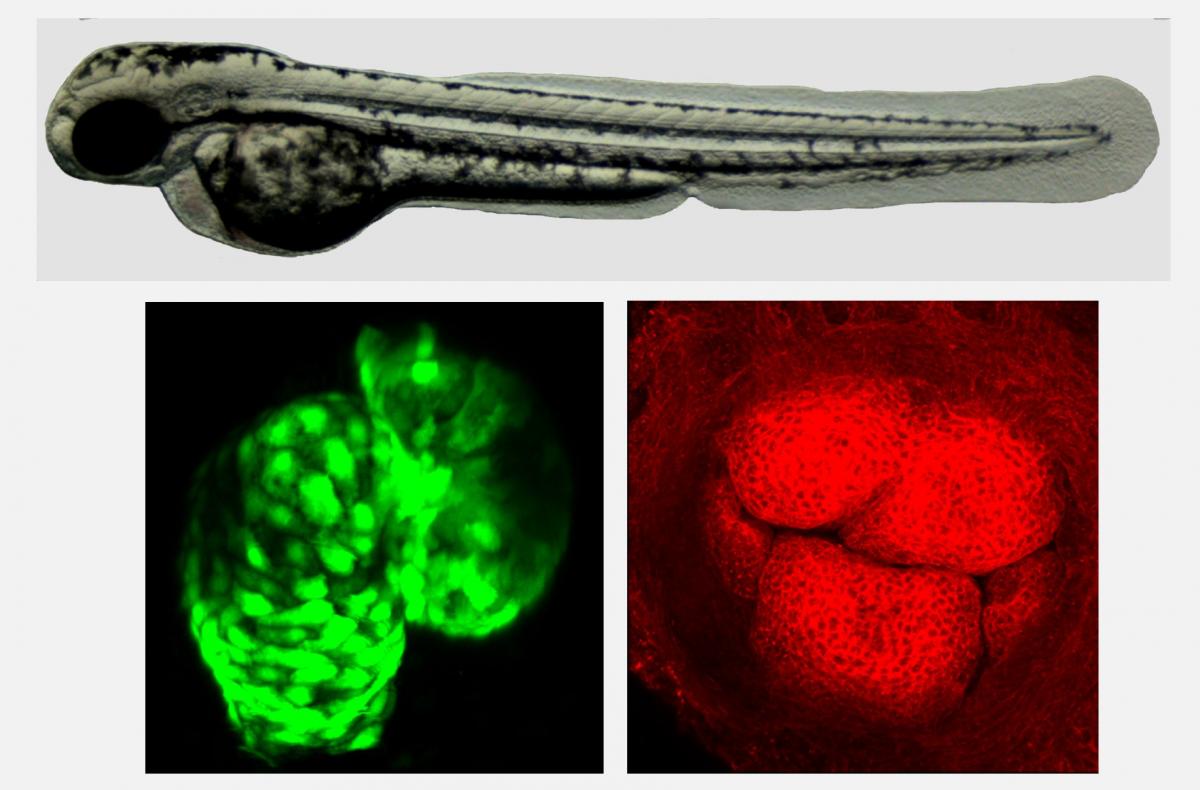INDIANAPOLIS -- The researchers found that early embryonic alcohol exposure alters several important signaling activities in the growing heart, resulting in faulty heart valve development.
The IUPUI scientists studied zebrafish to identify the causal link between alcohol intake and defects in heart-valve formation. Zebrafish are biologically similar to humans with the majority of human genes -- including those related to cardiac valve development -- having zebrafish gene counterparts.
These vertebrates, with their short life cycles, are an ideal model for investigation of the biological response to alcohol exposure. The zebrafish genome has been sequenced, gestation occurs outside the mother's body and embryos are transparent. Additionally, the zebrafish's two-chamber heart regenerates after injury. Its study may one day provide critical contributions to the design of treatments for alcohol-induced defects in human hearts.
In the study, published in the peer-reviewed PLOS ONE, the zebrafish were given levels of alcohol equivalent to those seen in human chronic alcoholics or binge drinkers. The National Institute on Alcohol Abuse and Alcoholism estimates that 20 to 30 percent of women drink at some time during pregnancy, in spite of the known link between alcohol and harm to the embryo in utero. It is not known what percentage of these women knew they were pregnant when consuming alcohol.
Human fetal alcohol syndrome occurs in about 1 in 1,000 births in Western societies, including in the United States, and occurs even more frequently in populations that are susceptible to alcoholism. This high prevalence has a significant cost to society.
"Clinicians often observe heart defects in individuals with fetal alcohol syndrome; however in order to fix something you need a detailed understanding of what's broken," said study co-corresponding author James Marrs, a professor of biology. "With our study, we have gained a better understanding of the origins and nature of heart-valve defects, information that may help researchers in the future in the development of potential human therapeutics.
"As we advance toward this goal our research group plans experiments on regenerative medicine therapy to remedy defects in the embryo and the juvenile -- and eventually in the adult -- zebrafish," he said. 
The IUPUI researchers visualized the alcohol-exposed zebrafish under the microscope using fluorescent markers and followed development of the heart defects with time-lapse imaging techniques. The defects persisted beyond the embryo stage and were visible in juvenile fish -- the zebrafish equivalent of human children and adolescents."
"There is a significant gap in our knowledge of alcohol effects on stem-cell populations and whether that affects the cells to become different kinds of heart cells, including muscle cells and valve cells," said study co-corresponding author Swapnalee Sarmah, a research assistant professor of biology. "We also don’t know whether the quality of heart cells gets compromised because of the alcohol exposure. Our study sheds light on the fact that valve cells in alcohol-exposed zebrafish are somewhat different than normal zebrafish valve cells,”
Sarmah also noted that understanding how to direct alcohol-exposed stem cells to become normal valve cells may lead to repair of defective valves in the future.
"Understanding cardiac regeneration in zebrafish might lead to strategies to repair damaged human hearts," said Marrs. "Looking beyond heart defects, if we eventually can 'teach' human hearts to regenerate, we could conceivably remedy heart attacks as well as other heart conditions.
In addition to Marrs and Sarmah, Pooja Muralidharan, who recently completed her doctoral degree at IUPUI, is a co-author of "Embryonic Ethanol Exposure Dysregulates BMP and Notch Signaling, Leading to Persistent Atrio-Ventricular Valve Defects in Zebrafish." The National Institute on Alcohol Abuse and Alcoholism funded the study.
###
The School of Science at IUPUI is committed to excellence in teaching, research and service in the biological, physical, computational, behavioral and mathematical sciences. The School is dedicated to being a leading resource for interdisciplinary research and science education in support of Indiana's effort to expand and diversify its economy.
(Written by: Cindy Fox Aisen)
Zebrafish graphic; courtesy of Swapnalee Sarmah